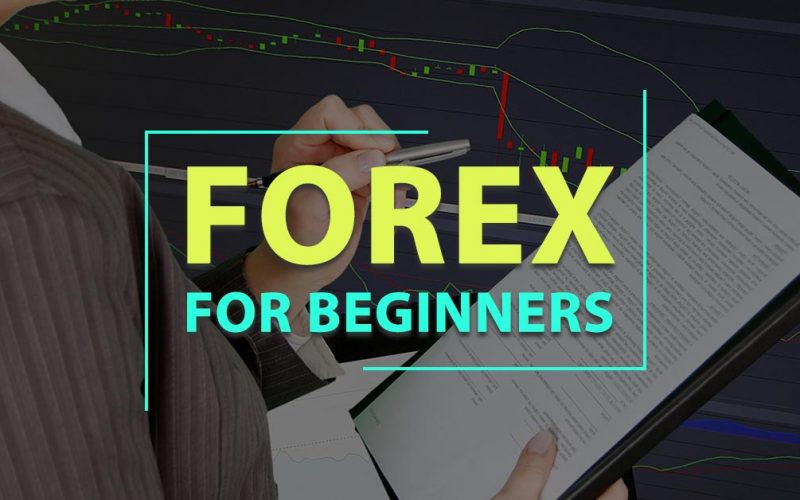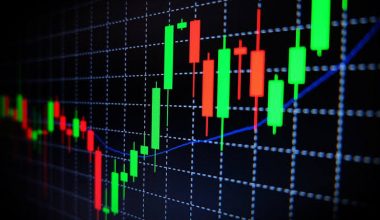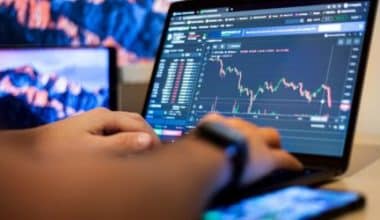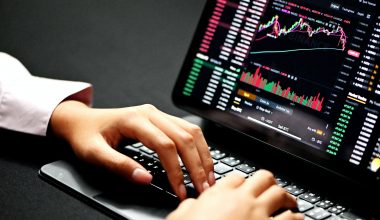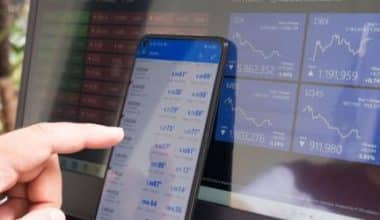Forex trading may appear to be a joke and a little bit confusing to beginners in the Uk. According to statistics, the daily amount of the euro traded on the UK foreign exchange markets in 2019 was around 3.5 trillion US dollars, up roughly 85% since 2001.
As you can see, it’s not a joke. Forex trading is still one of the most profitable financial options, and it’s just getting better. What about the confusing aspect? Don’t worry; we’ve taken the time to go over all you need to know about FX trading. In other words, this article will teach you about forex and CFD trading, as well as day trading for UK beginners. Come along!
What is Forex Trading?
The process of speculating on currency values to generate a profit is known as forex trading. Currencies are exchanged in pairs, so when a trader exchanges one currency for another, he or she is betting on whether the value of one currency will rise or fall concerning the value of the other.
A trader who uses the day trading method buys and sells equities throughout the trading day. The goal is to make a profit after commissions at the end of each trading session. Day traders often trade during the first 60 minutes (9:30 – 10:30 a.m. EST) and the last 30 minutes (3:30 – 4:00 p.m. EST) of each market session, when price volatility is at its maximum.
Forex Trading Tips For UK Beginners
As a newbie in the forex world, there are obviously basic things you should know before trading. Below is a forex day trading guide for UK beginners
#1. Understand the Markets
The importance of learning about the currency market cannot be overstated. Therefore, take the time to learn about currency pairs and how they are affected before jeopardizing your own money; it’s a time investment that might save you a lot of money.
#2. Create a strategy and stick to it
Developing a trading strategy is an important part of being a good trader. Your profit goals, risk tolerance level, methodology, and evaluation criteria should all be included. Remember that you’re most rational before you make a deal and most irrational after. So, once you’ve created a strategy, double-check that each deal you’re considering fits inside the parameters of your strategy.
#3. Testing
With a risk-free FOREX.com practice account, you can put your forex trading strategy to the test in real market conditions. Considering this, you’ll experience what it’s like to trade currency pairs while also putting your strategy to the test without jeopardizing your money.
#4. Predict the Market’s “Weather Conditions”
Philosophical traders like to trade based on news and other financial and political data, whereas technical traders seek to forecast market moves using technical analysis tools. However, the majority of traders employ a combination of the two. It’s critical, regardless of your trading style as beginners, that you use the resources available to you to identify prospective forex trading opportunities in the UK moving markets.
#5. Recognize Your Limits
Beginners in the UK should be conscious of their forex day trading limits. It’s a basic concept, yet it’s crucial to your future success. Knowing how much you’re willing to risk on each trade, adjusting your leverage ratio to meet your demands, and never risking more than you can afford to lose are all examples of this.
#6. Leave your feelings at the door.
You’ve finally opened a position, but the market isn’t moving in your favour. Maybe you could make up for it by making a handful of trades that aren’t in line with your trading strategy…a couple couldn’t harm, right?… Wrong!
“Vengeful trading” with forex is bad news on a good day for beginners. Don’t let your emotions get in the way of your trading strategy. When you have a losing trade, don’t go all-in to try to make it up in one go. Indeed, it’s better to adhere to your plan and make up the lost money gradually rather than ending up with two catastrophic losses all at once.
#7. Move Slowly and Consistently
Consistency is one of the most important aspects of forest day trading for beginners. All traders lose money at some point, but if you keep a positive edge, you have a better chance of winning. It’s great to educate yourself and make a trading strategy, but the real test is adhering to it with patience and dedication.
#8. Don’t Be Afraid to Take Risks
Change is constant in everything including forex trading. While consistency is essential, don’t be reluctant to rethink your trading strategy if things aren’t going as planned. Although your demands may modify as your experience grows; your plan should constantly reflect your objectives. In short, your strategy should evolve with your goals or financial condition
#9. Finally, Select the Most Appropriate Trading Partner for You
As you operate in the forex market, it’s vital to select the correct trading partner. Pricing, execution, and customer service quality can all have an impact on your trading experience.
FOREX.com is a global leader in currency trading, with low pricing, excellent customer service, and comprehensive instructions and videos to help you get started with forex trading. For a detailed review of Forex brokers and trading partners, click here.
What is CFD Trading For Beginners?
CFD day trading for beginners is simple in theory, but should not be taken lightly. In reality, it’s a complex investment instrument that, despite being largely graded, carry a significant level of risk for the trader, as well as the constant threat of limitless losses if a position goes wrong. As a result, before you start making calls and managing your CFD portfolio, you must first grasp what you’re dealing with and the ins and outs of what constitutes a CFD transaction.
Furthermore, CFD has a variety of distinguishing characteristics that set them apart from other instruments. They are highly leveraged, margin traded securities that are typically (but not always) sold off-exchange across a variety of markets. They might be a terrific method to profit from small market changes, but they can also be a very risky tool for any investor. But delving into the nitty-gritty is crucial to properly comprehend CFDs – knowledge that can then be used to make lucrative trading decisions.
So, what does CFD stand for in terms of trading for beginners? CFD allows you to trade equities, indices, commodities, forex pairings, and cryptocurrencies, among other financial markets.
Characteristics of Contract For Difference(CFD)
#1. Keeping it brief
A CFD is just a contract in which your supplier commits to pay you the amount that a market moves in your favour, as we’ve seen. Because you aren’t taking ownership of the market, you can decide whether you want to profit from market moves when you open your position.
#2. Amount of the margin
You do not have to pay the whole value of a CFD position when you open it. Instead, you put down a deposit that might be as high as 5% or 10% of the total cost of the position. After all, you’re not purchasing the underlying asset; instead, you’re betting on its price swings.
This is known as leveraged trading, and the amount you must deposit is referred to as your margin.
#3. Market diversity
Another advantage of never owning the assets you’re trading is that you’re not restricted in what you can buy or sell. If it’s a financial market with a price, you’ll most likely be able to use a CFD to go long or short on it.
For example, FOREX.com provides access to over 300 global assets. There are 220 stocks, 15 indexes, 80 forex pairs, precious metals, and other items on the list. This can be beneficial for diversifying your exposure as well as offering you a choice. Furthermore, you can reduce your overall risk by trading markets across asset classes and locations.
CFD Trading Advice For Beginners
If you’re new to CFD trading, a demo account can be a good place for beginners. CFD demos allow you to practice trading markets with virtual currency before investing real money.
#1. Stick with what you know
Indeed, there are a huge number of CFD markets to pick from, but it doesn’t mean you have to jump into obscure assets right once. Usually, it’s a good idea to start with a small number of markets you’re already familiar with. Once you’ve gained some confidence, you can begin to diversify your portfolio.
#2. Begin with little steps.
Position sizing can be highly advantageous when trading. In essence, you should only risk a modest fraction of your overall cash on each trade — approximately 1% or 2%. In the same way, you can learn from your mistakes without losing too much money. To clarify, if you’re only risking 2% on each trade, you can afford to make 20 mistakes in a row before losing your money.
#3. Use a stop sign at all times.
Stop orders (also known as stop-loss orders) allow you to manage your risk on any particular trade by automatically cancelling a position if it reaches a certain loss level. They remove some of the emotion from trading and eliminate the need to constantly monitor each open position.
Regardless of how proficient a trader is, he’d never initiate a position without a stop. Standard stops, on the other hand, do not put an absolute cap on your risk because they can slip. That means you’ll need a definite stop for that.
Can I teach myself trading?
Reading a book can teach you the theory of stock trading, but getting the knowledge, abilities, and confidence to trade with your own money takes more intensive instruction with live support. That is what an excellent online stock trading course can provide.
How much money do you need to be a day trader?
First, on any day that the client engages in day trading, pattern day traders must maintain a minimum equity position in their margin account of $25,000. Before you can start day trading, your account must have the appropriate minimum equity, which might be a combination of cash and qualified assets.
Can I make a living on day trading?
Can you profit from day trading? The majority of the time, day trading is not successful, but it occasionally is. By correctly timing the market, investors have occasionally been able to foresee the movements of a stock and earn six-figure returns.
Is trading a get rich quick?
Trading short-term is rarely a way to “get rich quick” and is NOT for novices. Without taking enormous risks, you cannot expect to reap enormous returns. Inconsistent trading performance and significant losses are consequences of a trading strategy that entails taking on a high level of risk.
Conclusion
Despite the fact that trading has become somewhat of a divisive topic, it can be a practical way to make money. Traders, whether institutional and individual, play a critical role in the market by keeping it efficient and liquid. Although trading is still popular among unskilled traders, it should be limited to those with the necessary skills and resources.
Related Articles
- BEST CRYPTO EXCHANGE WITH LOWEST FEES: Top 11+ (Updated)
- CFD Trading: Beginners Guide to the Best CFD Trading Platforms (Top 5 picks)
- FINANCIAL MARKET: All you should know with Practical examples (+ free pdfs)
- Cryptocurrency Trading App: Best 10 Crypto Trading Apps Review
- ECN Brokers: Best 9 for UK, Australian & US Clients (+ Detailed Guide)
FAQs On Trading For Beginners
How Do I Start Trading For Beginners?
- Find a stock broker. First step will be find an online stock broker. …
- Open Demat and Trading Account. …
- Login to your Demat and Trading account & add money. …
- View stock details and start trading.
Can I Start Trading With $100?
The short answer is yes. The long answer is that it depends on the strategy you plan to utilize and the broker you want to use. Technically, you can trade with a start capital of only $100 if your broker allows. However, it will never be successful if your strategy is not carefully calculated
What Type Of Trading is Most Profitable?
The safest and most profitable form of financial market trades is in stocks of companies. Making trades in stocks comes with fewer downsides. Investors may handpick the best stocks in the world, from European markets, Australian markets, Hong Kong Stock Exchange, FTSE 100, or anywhere else
Can You Make a Living Day Trading?
The first thing to note is yes, making a living on day trading is a perfectly viable career, but it’s not necessarily easier or less work than a regular daytime job. The benefits are rather that you are your own boss, and can plan your work hours any way you want.
How Can I Make Money By Trading?
- Know the kind of a trader you are. …
- Try and avoid the herd mentality. …
- Never try to time the stock market. …
- Have a disciplined approach for investment. …
- Never let your emotions influence the judgement. …
- Always have realistic goals.
